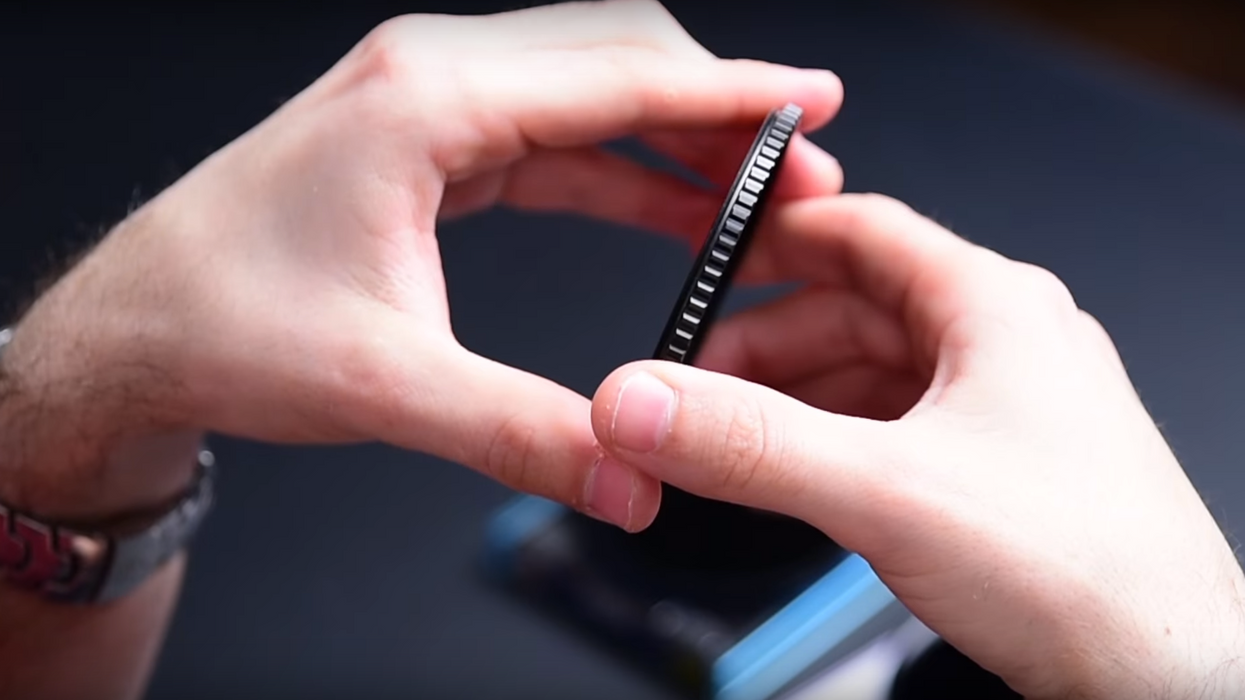5 Filters Go Head to Head in This Neutral Density Shootout
Not all ND filters are created equal.

Even though they're all designed to reduce the amount of light that hits your sensor, neutral density filters can vary quite a bit in terms of what effect they have on your final image, including color casting, vignetting, and exposure changes. But Patrick Hall of Fstoppers decided to test 5 different brands of ND filters, ranging in price between $100 to $250, to find out which ones performed the best.
Hall tests 5 different 6-stop 82mm filters:
- Hoya
- Tiffen
- Formatt Hitech
- B+W
- Breakthrough
To test these filters effectively and accurately, Hall needed to control over the lighting in the studio, so using a single monolight, the Profoto D1, he was able to maintain the same lighting condition throughout the entire test.
Here are the results of the different tests:
White Balance
This test is designed to determine which filter is the most color neutral, that is, doesn't bring any additional color to the image.

White Balance in Lightroom
For this test, Hall brings each photo into Lightroom and uses the WB dropper to see if he can make each image look identical. What he also found was that almost every filter was slightly more dense than they advertised, except for the Breakthrough.
- Hoya: 1/5 stop more dense
- Tiffen: 3/4 stop more dense
- Formatt Hitech: 1/10 stop more dense
- B+W: 1/3 stop more dense
- Breakthrough: no change in exposure
Vignetting
Hall is shooting on at 24mm on his lens, which is fairly wide. Expect more vignetting the wider you shoot.

Sharpness
Though Hall found the Tiffen and Breakthrough filters to be a tad bit sharper than the others, he said that the difference was barely noticeable. Essentially all of these filters had about the same amount of sharpness.
Price
The Winner
According to Hall, the Breakthrough filter came out on top for several reasons. It performed well in all the tests -- no too much color shift, had the lease vignetting out of the 5, had no change in exposure, and was one of the sharpest. Furthermore, the price was right in the middle -- it wasn't the most expensive, but at nearly $200, it wasn't the cheapest either. (Perhaps the high price affords you the helpful grooves along the edges that will help you screw it on and off of your lens?)
What's your favorite ND filter to use? What is your least favorite? Let us know in the comments below!
Source: Fstoppers













